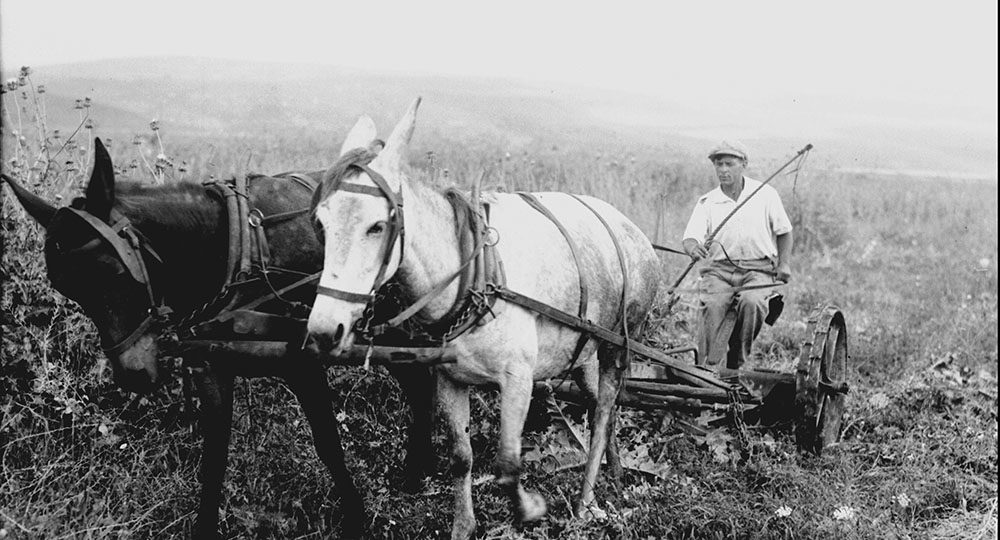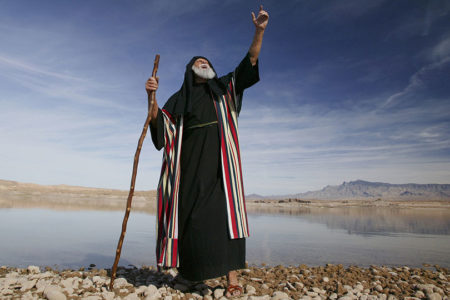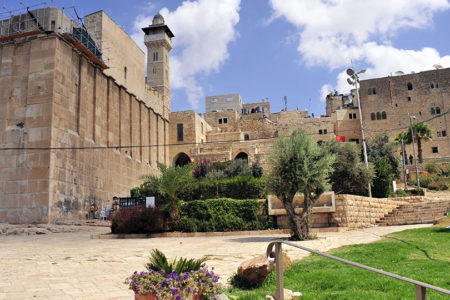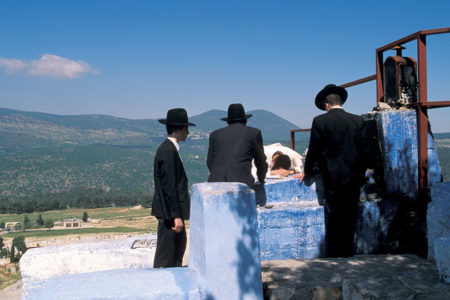Buying Back Their Land
Whether or not the Jewish people were faithful to God, their behavior never invalidated their rightful ownership of the land of Israel. Disobedience cost them possession of it from time to time, but never their God-given title to it.
For born-again believers, the situation can be likened to the doctrine of eternal security. Salvation in Jesus Christ is a gift from God. Once received, it cannot be lost (Jn. 3:16; 10:28). Bad conduct on the part of an individual who possesses this gift may quash blessings, but it cannot nullify God’s promise of eternal redemption (6:37–39; 1 Cor. 3:15).
The Jewish people own the Promised Land based on the fact that God gifted it to them via an eternal, unconditional covenant. Some Jewish notables actually purchased parcels of their own land from the inhabitants. Abraham bought a cave from Ephron the Hittite in which to bury his wife, Sarah (Gen. 23:16). Jacob bought land from Hamor in Shechem (33:19).
Even King David, who ruled the entire land for 40 years, spent money to purchase a threshing floor from Ornan the Jebusite (2 Sam. 24:21–24; 1 Chr. 21:22–25). Today that threshing floor is known as the Temple Mount—the property where two Jewish Temples once stood and where the Muslim Dome of the Rock sits.
Prior to the birth of modern Israel, Jewish people continued to buy back their own land. Wrote foreign policy expert Mitchell G. Bard, “From the beginning of World War I,…part of Palestine’s land was owned by absentee landlords who lived in Cairo, Damascus and Beirut. About 80 percent of the Palestinian Arabs were debt-ridden peasants, semi-nomads and Bedouins.”1
Investors purposely sought property that would not displace Arabs, so they purchased tracts that were largely unwanted, uncultivated, and swampy. “It was only after the Jews had bought all of the available uncultivated land,” wrote Bard, “that they began to purchase cultivated land. Many Arabs were willing to sell because of the migration to coastal towns and because they needed money to invest in the citrus industry.”2
A top British official in 1930 observed, “They [Jews] paid high prices for the land, and in addition they paid to certain of the occupants of those lands a considerable amount of money which they were not legally bound to pay.”3
By 1944, Jewish investors continued to pay exorbitant prices to wealthy landowners for small parcels of arid or semiarid lands. Land records from 1880 to 1948 show that 73 percent of Jewish plots were purchased not from the poor Arab peasant farmers or agricultural laborers, but from large landowners.
The policy worked until the Palestinian Authority under Yasser Arafat issued a death penalty for all Arabs who sell land to Jewish Israelis. In 1997 a 70-year-old Arab real-estate dealer was murdered after he violated the edict. In the same year, three more Arab land dealers were killed, and a fourth disappeared. To this day, Arafat’s successors have not repudiated this decree.
It has been calculated there are at least 170 references in Scripture stating God gave the land to the offspring of Abraham, Isaac, and Jacob. The Bible records that God confirmed the gift 55 times with an oath. Twelve of those times, He calls His covenant “everlasting.”
God also declares, “The land shall not be sold permanently, for the land is Mine; for you are strangers and sojourners with Me” (Lev. 25:23). Who can tell the Almighty what He can or cannot do? He has the right to give the land to whomever He pleases because, in the end, He is the Owner.
ENDNOTES
- Mitchell G. Bard, “Myth: Jews stole Arab land,” Myths and Facts Online <jewishvirtuallibrary.org/jsource /myths3/MFmandate.html#5>.
- Ibid.
- Sir John Hope Simpson, Palestine: Report on Immigration, Land Settlement and Development (London: His Majesty’s Stationery Office, 1930) <unispal.un.org/UNISPAL.NSF/0/E3ED8720F8707C9385256D19004F057C>.








Great point I have shared with others…
It has been calculated there are at least 170 references in Scripture stating God gave the land to the offspring of Abraham, Isaac, and Jacob. The Bible records that God confirmed the gift 55 times with an oath. Twelve of those times, He calls His covenant “everlasting.”